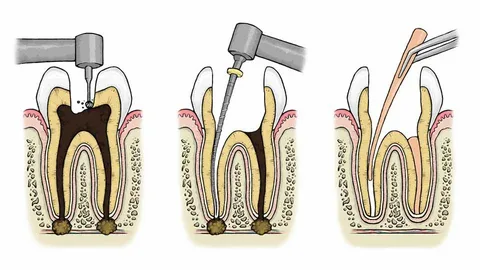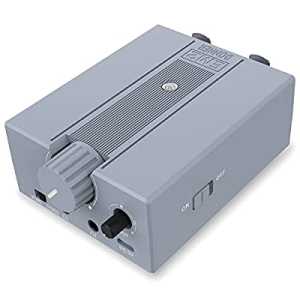
Emergency Root Canal: What To Do When You Need Immediate Treatment

Have you ever been struck by a sudden, unbearable toothache that makes you wish for instant relief? Such situations might indicate the need for an emergency root canal. Let's explore what this procedure entails and when it becomes essential. If you are looking for root canal treatment in India do consider SmyleXL Dental Clinic for effective solution for oral health
What is a Root Canal?
A root canal is a dental procedure designed to remove infected or damaged pulp from the root canal system of a tooth. The primary objective is to alleviate pain and salvage the natural tooth, eliminating the necessity for extraction.
Signs You Might Need an Emergency Root Canal
- Intense toothache, particularly while biting or chewing
- Gum swelling and tenderness
- Prolonged sensitivity to hot or cold foods and beverages
- Tooth discoloration
- A recurring bump on the gums
Causes of Emergency Root Canal
Severe Tooth Decay
Neglected cavities can progress into deep tooth decay, reaching the pulp and causing an infection. If this condition remains untreated, it can lead to severe pain and necessitate an emergency root canal.
Dental Abscess
An abscessed tooth is a collection of pus resulting from a bacterial infection. This can arise due to untreated cavities, gum disease, or dental trauma, demanding immediate intervention to avert further complications.
Traumatic Tooth Injury
Accidental impacts or injuries to the mouth can fracture or dislocate teeth, exposing the pulp to bacteria and resulting in an infection. An emergency root canal might be imperative to salvage the injured tooth.
Immediate Steps to Take
Contact Your Dentist
If you're grappling with severe tooth pain or any of the symptoms listed above, promptly contact your dentist. They can offer guidance on the subsequent steps and arrange an emergency appointment if required.
Manage Pain at Home
While awaiting your dental consultation, you can alleviate pain by using over-the-counter pain relievers, applying cold packs to the affected area, and refraining from consuming extremely hot or cold foods and beverages.
Avoid Certain Foods and Drinks
To prevent exacerbating the discomfort and pain, steer clear of hard, crunchy, or sticky foods and beverages that are too hot or cold.
What to Expect During an Emergency Root Canal
Evaluation and Diagnosis
Your dentist will conduct a thorough examination of the affected tooth, take X-rays, and diagnose the underlying issue to ascertain whether an emergency root canal is warranted.
The Root Canal Procedure
During the procedure, the infected pulp is removed, the root canal is cleaned and disinfected, and it is sealed to prevent future infections. Local anesthesia is administered to numb the area, ensuring a pain-free experience.
Aftercare and Recovery
Following the root canal, you may experience some discomfort and swelling, which can be managed with prescribed medications and proper oral hygiene practices. Adhere to your dentist's post-procedure guidelines to facilitate healing and avert complications.
Prevention Tips
Maintain Good Oral Hygiene
Brushing your teeth twice a day, flossing daily, and using an antiseptic mouthwash can help thwart tooth decay and gum disease, reducing the likelihood of requiring an emergency root canal.
Regular Dental Check-ups
Regular visits to your dentist for check-ups and cleanings are crucial. This allows for the early detection and treatment of dental issues, preventing them from escalating into emergencies.
Conclusion
Facing the prospect of an emergency root canal can be daunting, but being informed about the signs, causes, and necessary steps can empower you to handle dental emergencies effectively. By prioritizing oral hygiene, seeking timely dental care, and knowing what to expect, you can safeguard your oral health and well-being.
FAQs
Q: What is an emergency root canal?
An emergency root canal is a dental procedure performed to remove infected or damaged pulp from a tooth's root canal system, providing immediate relief from severe pain and preventing tooth loss.
Q: How do I know if I need an emergency root canal?
Signs that you might need an emergency root canal include severe tooth pain, swelling and tenderness in the gums, sensitivity to hot or cold temperatures, and discoloration of the tooth.
Q: Is an emergency root canal painful?
While the idea of an emergency root canal may seem intimidating, the procedure is conducted under local anesthesia to numb the area, ensuring a comfortable experience for the patient.
Q: How long does it take to recover from an emergency root canal?
Recovery from an emergency root canal varies depending on individual healing. Generally, patients may experience some discomfort and swelling for a few days, which can be managed with prescribed medications and proper care.
Q: Can an emergency root canal be prevented?
Maintaining good oral hygiene, attending regular dental check-ups, and promptly addressing dental issues can help prevent the need for an emergency root canal.
Author Bio
Article Comments
No Comments!
At present there are zero comments on this article.
Why not be the first to make a comment?
Similar Articles
Search Pages
Upgrade User Account
account to full use of editor,
including hyperlinks
Article Categories
There are zero sub-categories in this parent category.
There are zero sub-categories in this parent category.











